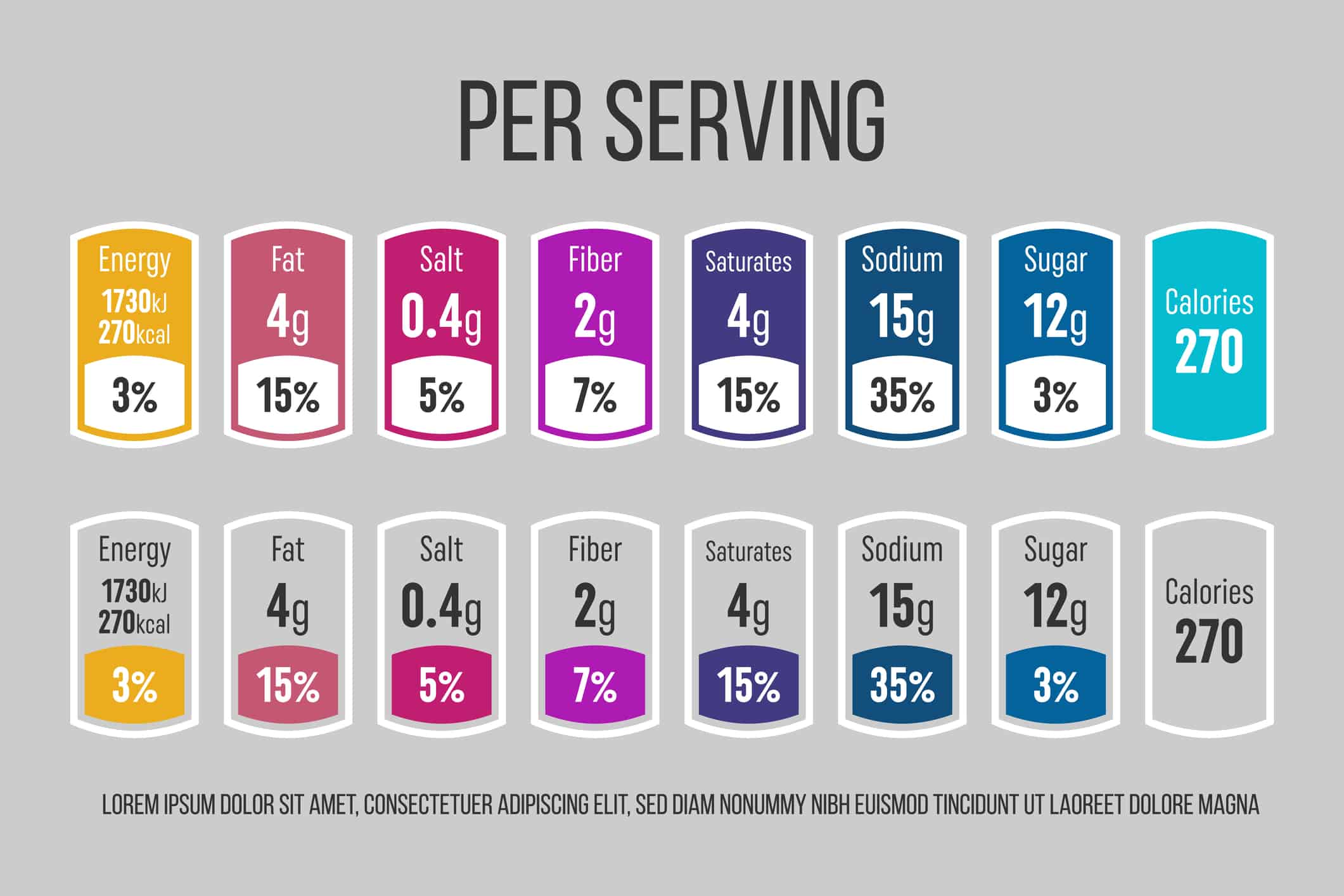Nutrition & Health Snapshot
ILSI’s comprehensive nutrition and health programs are designed to improve scientific understanding of nutritional requirements throughout the lifecycle; food components that contribute to health beyond basic nutrition; eating behavior; healthy aging; and more.
The Role of Gut Derived Short Chain Fatty Acids in Human Health
Prebiotics have a beneficial impact on microbiota composition, resulting in increased production of specific metabolites. Short chain fatty acids (SCFA) production is considered as (part of) the mechanism by which prebiotics exert beneficial effects on gut health, systemic physiological effects, and metabolic function. Increasing SCFA production and a more saccharolytic fermentation have thus been widely considered as a health benefit. Achieving more clarity on this subject will also support policy makers in assessing benefits of prebiotics and dietary fiber consumption for the consumer.

An expert group set up by ILSI Europe investigates and evaluates the current scientific knowledge on SCFAs as a health benefit/biomarker by providing coherent evidence of their beneficial action(s). Within the framework of this activity, ILSI Europe organized a workshop in Brussels, Belgium in which the health relevance of increased/altered SCFA production in the gastro-intestinal tract (GIT) was discussed with a panel of multidisciplinary experts.

Healthy Aging Nutrition for the Aging Brain
Decline on cognitive abilities with age occurs in healthy individuals and spreads through the adult lifespan. The mechanisms contributing to normal aging, including oxidative stress, neuroinflammation, and vascular dysfunction, are the same as those contributing to the development of neurological diseases.
Despite a wealth of data on how nutrients and diets may support cognitive functions and preserve brain health, the therapeutic and pharmacological potential of these natural compounds still remains to be fully translated in humans and in clinical conditions. ILSI Europe hosted their third workshop in a series titled “Nutrition for the Ageing Brain: Moving Towards Clinical Applications.” This symposium specifically focused on clinical aspects and novel strategies developed to determine whether diet and nutrients are efficient in individuals affected by dementia and other neurodegenerative conditions. The proceedings are currently under development.
Nutrition and Life Course Approach to Healthy Aging
The ILSI Southeast Asia Region Philippines Country Committee recently held a seminar titled “Nutrition and Life Course Approach to Healthy Aging,” with the objectives of describing the aging process through the life course; characterizing the nutrition and health profile of older persons across the region; sharing recent studies on determinants of successful aging; describing nutrition and dietary approaches to reduce risk to sarcopenia; the aging brain and physical inactivity. The seminar also provided an update on new technologies on food product development, as well as presented efforts to promote a healthy aging agenda for older persons.
Understanding Consumer Food Choices
Nudging and Sustainable Changes Towards Healthier Food Choices
Unhealthy food choices and related behaviors are currently driving increased rates of obesity, with concomitant increases in the incidence of non-communicable diseases. Nudging is being widely adopted as a measure to encourage healthier consumer food choices, although there is mixed evidence to support its use as a behavioral intervention, in particular in terms of long-term dietary changes.

In addition, various theoretical approaches and methodological perspectives have been retrospectively aggregated under the “nudging” umbrella, in the absence of a formalized definition or theoretical perspective on what nudging actually represents.
ILSI Europe began a project to underline scientifically based evidence regarding when, and under what circumstances, nudging can be used as an intervention to promote short- and long-term changes in eating behaviors in the direction of healthier diets. The project will also propose a gap analysis and a research agenda regarding future data needs with regard to nudge theory and sustainable healthy dietary choices. Ultimately, this project will lead to a greater understanding about the potential role of the psychological and cultural determinants of food choice in the context of nudging theory.
Understanding Drivers of Consumer Food Choices
Understanding how consumers make food choices, and why they like what they choose to eat, is of central importance to nutritionists and other healthcare professionals, researchers, policy makers, and the food industry. Better insight into the main determinants of food choice enables the development of policies and interventions that promote healthier eating patterns. In addition, an in-depth understanding of drivers of food choice is essential in the development of products and services that adequately meet consumer needs.
ILSI Southeast Asia Region, in collaboration with the Food Science and Technology Association of Thailand, organized a 1.5-day seminar on “Understanding Drivers of Consumer Food Choices” in Bangkok, Thailand to provide insights into the drivers of consumer food choices. Approaches and methodologies used in the study of consumer food choice were presented. The seminar also provided a platform for discussing ways to improve consumer food choice through a multi-stakeholder approach and various communication strategies to be used for different stakeholders to ensure effective communication resulting in healthier consumer food choices, including nutrition labels and claims, social media vs digital media, commercials, advertisements, and events.

Physical Activity and Health
Physical activity has significant health benefits and contributes to prevent noncommunicable diseases (NCDs). Globally, 23% of adults and 81% of school-going adolescents are not active enough.
ILSI Japan held the “9th Life Science Symposium” in July 2018 with the theme “The Integration of Nutritional and Exercise Science from Basic Research to Applied Research Toward Lengthening the Healthy Life Expectancy.” There is increased interest in this topic in Japan ahead of Tokyo hosting the 2020 Olympics and Paralympics.
ILSI Argentina completed SALTEN, a comprehensive study for the prevention
of Obesity and NTCD-SALTEN (this acronym can be translated as “Jump” and it stands for Healthy, Active and Free from NCCD, based on the Spanish initials). SALTEN was a multidisciplinary school intervention that aimed to promote healthy food habits and physical activity among 8- and 9-year-old children from public schools at Buenos Aires province. As a result of the project, education cards were developed and are available online. The report is also available online.

Nutrition Labeling and Claims
Nutrition labeling and claims are seen by health authorities as important education and guidance tools for consumers, with trade relevance to the food, beverage, and ingredients industry in the region. Since 2001, ILSI Southeast Asia Region has facilitated a series of seminars and workshops for regulators, researchers, and relevant food industry personnel from the region to discuss issues related to nutrition labeling and claims, scientific substantiation of health claims, as well as the development of guidelines and regulatory framework in nutrition labeling and claims.
Continuing this series, in August the “10th Seminar and Workshop on Nutrition Labeling, Claims and Communication Strategies” was held in Kuala Lumpur, Malaysia. Co-organized with the Nutrition Society of Malaysia and in collaboration with Food Safety and Quality Division, Ministry of Health Malaysia, these meetings serve to provide updates on and key learnings from international and regional developments in nutrition labeling, nutrition and health claims. and related issues in Southeast Asia, and to explore potential areas for harmonization in the region.
Dietary Intake Study
ILSI South Africa identified the need for conducting a Dietary Intake Study in South Africa some years ago. The study began in 2018 in two of the nine provinces of the country (Western Cape and Gauteng). The study began in August with the aim of determining the dietary intake of children aged 1 to 9 years old. The purpose is to gauge whether there are any differences in current dietary intakes vs those generated in the National Food Consumption Study in 1999, almost 20 years ago. During this period, much urbanization has occurred with a growth in the middle class and associated changes in dietary patterns. The study is being undertaken by researchers at University of Cape Town (UCT), with formal results expected in June 2019.

ILSI's nutrition and health programs are comprehensive.
ILSI's programs are designed to improve scientific understanding of eating behavior; nutrition throughout the lifecycle; food components that contribute to health beyond basic nutrition; and much more.
National governments and world bodies like the World Health Organization are concerned about acute and chronic nutrition-related disease, resulting from both under-nutrition and overconsumption. In almost all regions of the world and especially in many developing economies, increasing rates of obesity and subsequent comorbidities pose as series a threat as do anemia and other micronutrient deficiencies.
Also, governments, health professionals, and conscientious food manufacturers are concerned about the science supporting the myriad of product health claims promising more than essential nutrition. What is the level of evidence needed, and are some types of data better than others? Are standards for reporting out scientific findings sufficient to ensure consumers have complete and accurate information?
How ILSI's Nutrition and Health Programs Help Make A Difference
Project IDEA (Iron Deficiency Elimination Action) efficacy studies show a reduction in iron deficiency from 22.3 to 4.0% and in the prevalence of anemia from 24.7 to 8.5% in control groups.
ILSI Japan Center for Health Promotion's Project Idea
Children participating in ILSI's TAKE 10! in-classroom physical activity and nutrition program experienced higher physical activity levels (13%>), reduced time-off-task (20.5%), and improved reading, math, spelling and composite scores (p<0.01).
Publication: Ten Years of TAKE 10!®: Integrating physical activity with academic concepts in elementary school classrooms.
